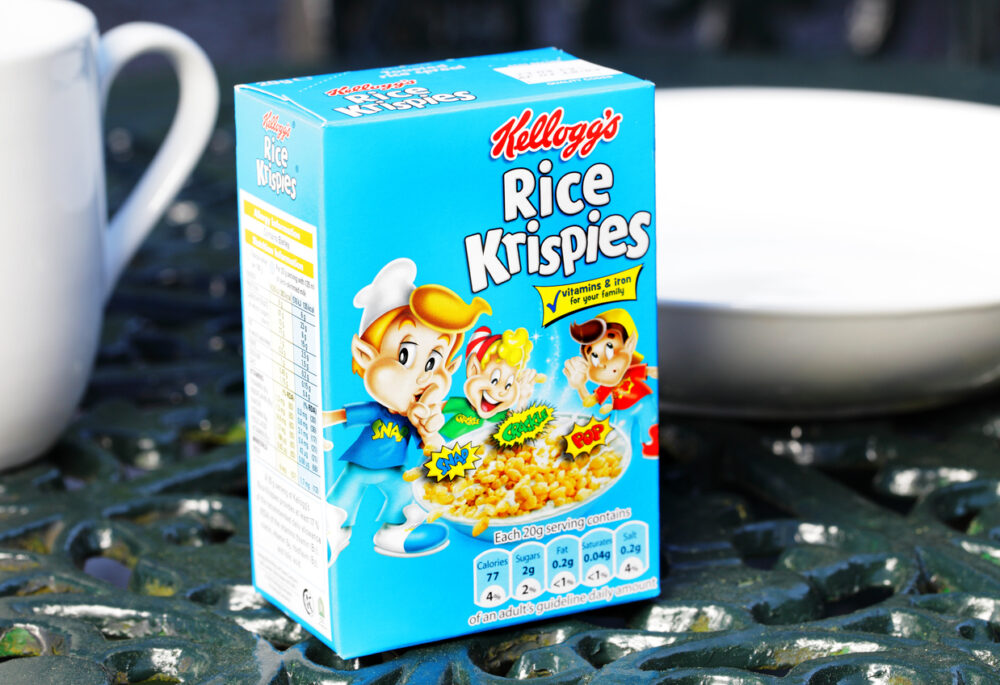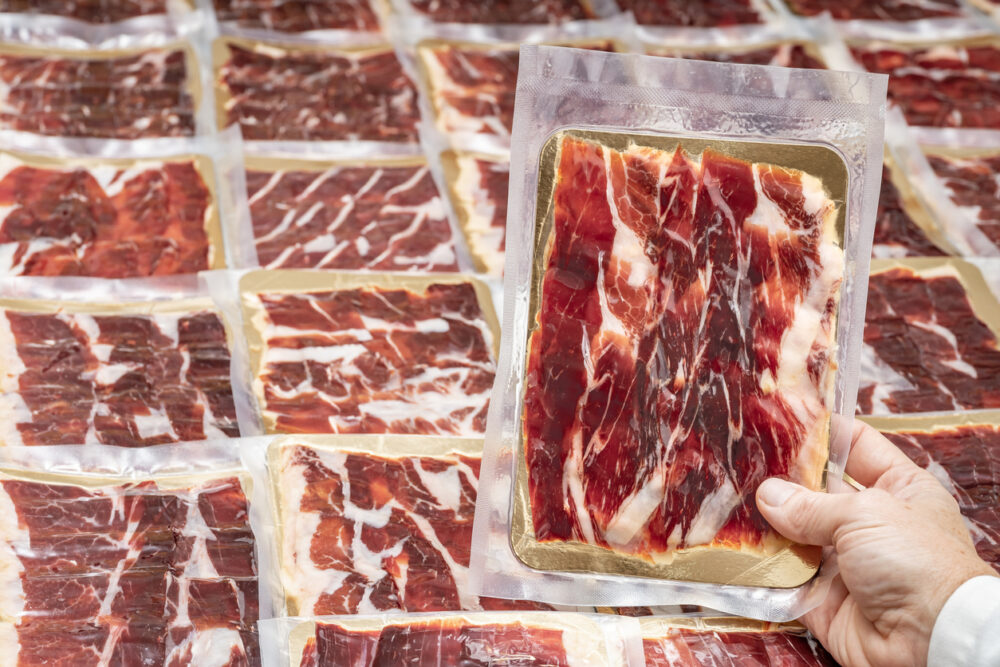These 12 foods are a one-way ticket to heart disease, according to top cardiologists.

You won’t believe what your heart doctor secretly avoids eating—and for good reason! We all want to keep our hearts healthy, but with so much conflicting advice out there, it’s easy to feel lost. You might think you’re making good choices, dutifully reaching for what you believe are “healthy” options, only to discover they could be silently sabotaging your ticker. What if some of the foods you regularly enjoy are the very culprits behind heart troubles, despite their innocent appearance?
It’s time to pull back the curtain on those sneaky dietary dangers. Forget the generic advice you’ve heard a thousand times. Instead, imagine having a candid conversation with a top cardiologist, asking them directly, “What do you refuse to put on your plate?” This isn’t about extreme diets or deprivation; it’s about empowering you with knowledge. You’ll learn which common foods are red flags for heart health, giving you the power to make informed decisions that genuinely protect your most vital organ. Get ready to transform your understanding of what truly nourishes—and harms—your heart.
1. Diet soda is secretly wrecking your heart health.

You might grab a diet soda thinking you’re making the “healthy” choice, cutting down on sugar and calories. But what if that bubbly, seemingly innocent drink is actually doing more harm than good to your precious heart? It’s a common misconception that because it has zero sugar, it’s a guilt-free pleasure. The truth is, the artificial sweeteners and other chemicals packed into diet sodas can mess with your metabolism in ways you wouldn’t expect, according to Rachael Ajmera, MS, RD at Healthline. Studies have actually linked regular consumption of these drinks to an increased risk of heart attacks and strokes, not to mention issues like obesity and type 2 diabetes. Your body reacts to these artificial ingredients in unpredictable ways, sometimes even increasing cravings for sugary foods later on.
So, while you’re trying to be good, you could be setting yourself up for a cycle of unhealthy eating and putting unnecessary strain on your cardiovascular system. Ditching the diet soda is a small change that could have a big payoff for your long-term heart well-being.
2. Sugary cereals are a hidden danger lurking in your breakfast bowl.

That seemingly innocent box of frosted flakes or colorful loops you grew up with might be a sweet treat, but for your heart, it’s a nightmare in disguise, as stated by Andrew Jacobs at The New York Times. We’re often told breakfast is the most important meal of the day, but starting it with a massive dose of added sugar sets you up for a crash later and puts undue stress on your system right from the start. These cereals are typically loaded with refined carbohydrates and artificial ingredients, offering very little in terms of actual nutritional value, .
When you consume a high-sugar breakfast, your blood sugar spikes dramatically, forcing your pancreas to work overtime to produce insulin. Over time, this constant rollercoaster of blood sugar can lead to insulin resistance, inflammation, and an increased risk of developing type 2 diabetes—all of which are major risk factors for heart disease. It’s like pouring rocket fuel into your body every morning, but instead of propelling you forward, it’s quietly corroding your internal engine. Your heart deserves a much more wholesome beginning to its day.
3. Processed meats are a ticking time bomb for your arteries.

Think twice before grabbing that hot dog, bacon, or deli meat, because these processed powerhouses are notoriously bad news for your heart, as stated by Rob Mansfield at the World Cancer Research Fund. They’re often loaded with sodium, nitrates, and unhealthy saturated and trans fats, all ingredients that cardiologists actively steer clear of for a very good reason. The high sodium content alone can lead to elevated blood pressure, making your heart work harder and straining your arteries over time. Then there are the nitrates and nitrites, chemicals used for preservation and color, which have been linked to increased risks of certain cancers and may also contribute to arterial damage. It’s like a triple threat to your cardiovascular system.
Eating these regularly can contribute to the buildup of plaque in your arteries, narrowing them and increasing your risk of heart attacks and strokes. Your body is essentially trying to process a chemical cocktail that it’s not designed to handle, leading to chronic inflammation and a stressed-out heart.
4. Fried foods are silently clogging your arteries with every bite.

That crispy, golden perfection of fried chicken, French fries, or doughnuts might be incredibly tempting, but each bite comes at a significant cost to your heart. When foods are deep-fried, they absorb a massive amount of unhealthy trans fats and saturated fats from the cooking oil. These fats are notorious for raising your “bad” LDL cholesterol levels while simultaneously lowering your “good” HDL cholesterol, a double whammy for arterial health. This unfavorable lipid profile significantly contributes to the buildup of plaque in your arteries, a process called atherosclerosis, which can narrow them and restrict blood flow.
Furthermore, the high temperatures used in frying can create harmful compounds that promote inflammation and oxidative stress in your body, further damaging your blood vessels. It’s like constantly greasing up the pipes of your internal plumbing, eventually leading to blockages and potential system failure. Your heart will thank you for choosing baked, grilled, or air-fried options instead.
5. Margarine is a deceptive imposter that harms your heart.

For years, margarine was touted as a healthier alternative to butter, but the truth is, many types of margarine are far from heart-friendly. Traditional margarines were often made through a process called hydrogenation, which created trans fats. These man-made fats are arguably the worst kind for your heart, known to dramatically increase bad cholesterol while simultaneously lowering good cholesterol. This disastrous combination is a prime recipe for arterial plaque buildup and significantly elevates your risk of heart disease.
Even though many manufacturers have reduced trans fats due to regulations, some margarines still contain partially hydrogenated oils or are high in highly processed vegetable oils that can become inflammatory when consumed regularly. Your body struggles to process these artificial fats, leading to cellular damage and chronic inflammation, both of which are major contributors to cardiovascular problems. Choosing real butter in moderation, or opting for healthier fats like avocado oil or olive oil, is a much safer bet for your heart.
6. Energy drinks are a dangerous stimulant stressing your heart.

Reaching for an energy drink when you’re feeling a slump might seem like a quick fix, but these beverages are a cardiologist’s worst nightmare. They’re typically loaded with excessive amounts of caffeine, often combined with other stimulants like guarana and taurine, and a hefty dose of sugar or artificial sweeteners. This potent cocktail can send your heart into overdrive, causing an abrupt increase in heart rate and blood pressure, even in healthy individuals.
For someone with underlying heart conditions, this can be incredibly dangerous, potentially triggering arrhythmias or other serious cardiac events. Beyond the immediate effects, regular consumption can lead to chronic sleep disturbances, anxiety, and a constant state of elevated stress on your cardiovascular system. It’s like constantly pushing your heart’s gas pedal to the floor without giving it a chance to rest, eventually leading to wear and tear. Your body’s natural energy mechanisms are far safer and more sustainable than these artificial jolts.
7. Packaged baked goods are a sweet trap for your cardiovascular system.

Those tempting cookies, cakes, and pastries found on supermarket shelves might offer convenience and a quick sugar fix, but they’re a cardiologist’s forbidden indulgence for good reason. These ultra-processed treats are typically brimming with refined sugars, unhealthy trans and saturated fats, and a host of artificial ingredients and preservatives. The high sugar content leads to rapid blood sugar spikes, promoting inflammation and increasing the risk of insulin resistance, both of which are direct pathways to heart disease. Furthermore, the unhealthy fats contribute to elevated bad cholesterol levels and arterial plaque formation, essentially gumming up your circulatory system.
Your body struggles to recognize and properly process these chemically altered components, leading to chronic stress on your organs. It’s a sad truth that convenience often comes at the cost of your health, and these sugary concoctions are a prime example of foods that actively work against your heart’s long-term well-being.
8. Microwave popcorn is a sneaky source of harmful chemicals for your heart.

You might think a bag of microwave popcorn is an innocent, movie-night snack, but the truth behind that convenient bag is far from healthy for your heart. Many brands of microwave popcorn use specific chemicals in their packaging, like perfluorooctanoic acid (PFOA), which have been linked to various health problems, including potential thyroid issues and heart disease. Beyond the bag itself, the popcorn is often cooked in unhealthy, partially hydrogenated oils, which are sources of trans fats – arguably the worst kind of fat for your cholesterol levels and arterial health.
Plus, the artificial butter flavoring often contains diacetyl, a chemical that can pose respiratory risks and has also been implicated in other health concerns. It’s a combination of questionable fats, potentially harmful chemicals from the packaging, and sometimes excessive sodium, creating a trifecta of stress for your cardiovascular system. Opting for air-popped popcorn made with a healthy oil is a much smarter choice.
9. Canned soups are a sodium bomb silently sabotaging your blood pressure.

When you’re short on time, a can of soup might seem like a quick and comforting meal, but your heart doctor would definitely advise against making it a regular habit. The biggest culprit lurking in most canned soups is an astronomical amount of sodium. While a little salt is necessary, the levels in these convenience foods are often ridiculously high, sometimes exceeding half of your daily recommended intake in a single serving.
This excessive sodium intake leads directly to increased blood pressure, also known as hypertension. High blood pressure forces your heart to work harder to pump blood through your body, and over time, this constant strain can damage your arteries and increase your risk of heart attack, stroke, and kidney disease. It’s like constantly running your car engine at maximum RPM – eventually, something is going to give. Your heart benefits immensely from less sodium, so fresh, homemade soups are always the healthier way to go.
10. Non-dairy coffee creamers are a creamy illusion damaging your arteries.

You might be trying to cut down on dairy, or just love the rich creaminess these add to your morning coffee, but many non-dairy creamers are a hidden source of trouble for your heart. Despite their “non-dairy” label, a significant number of these products are loaded with partially hydrogenated oils, a major source of unhealthy trans fats. As you already know, trans fats are notorious for raising your “bad” LDL cholesterol and lowering your “good” HDL cholesterol, which is a perfect storm for arterial plaque buildup and increased heart disease risk.
Beyond that, they often contain corn syrup solids, artificial flavors, and other highly processed ingredients that offer no nutritional benefit and can contribute to inflammation in your body. It’s a classic case of an ultra-processed food masquerading as a healthier option. Your heart deserves real, wholesome ingredients, not a chemical cocktail designed for shelf stability and artificial creaminess.
11. Refined grains are stripped of nutrients and burden your cardiovascular system.

You might think that white bread, white rice, and many common pasta varieties are harmless staples, but these refined grains are essentially stripped of their valuable nutrients and can be surprisingly detrimental to your heart health. During the refining process, the beneficial outer layers of the grain, which contain fiber, vitamins, and minerals, are removed. What’s left is primarily starch, which your body rapidly converts into sugar.
This leads to quick spikes in blood sugar and insulin levels, similar to what happens when you eat sugary foods. Over time, this constant fluctuation can contribute to insulin resistance, chronic inflammation, and an increased risk of type 2 diabetes—all significant risk factors for heart disease. Your body needs the fiber from whole grains to help regulate blood sugar and cholesterol, and without it, your cardiovascular system bears the brunt. It’s like eating empty calories that offer no protection and only add stress to your internal systems.
12. Most restaurant desserts are sugar bombs disguised as sweet endings.

That tempting dessert menu at your favorite restaurant might promise a delightful end to your meal, but for your heart, it’s often a catastrophic sugar explosion. Restaurant desserts are typically made with enormous quantities of refined sugar, unhealthy fats (often saturated or trans fats from processed ingredients), and an array of artificial flavors and colors. These portions are usually far larger than what would be considered reasonable, delivering a massive, concentrated dose of calories, sugar, and bad fats in one sitting.
This immediate influx of sugar sends your blood glucose levels soaring, forcing your pancreas to work overtime and promoting inflammation throughout your body. The high-fat content further contributes to unhealthy cholesterol levels and arterial plaque. It’s a once-in-a-while indulgence that, if made a habit, can significantly undermine all your other efforts to maintain a healthy heart. Your cardiologist would surely opt for fresh fruit or skip dessert altogether.
